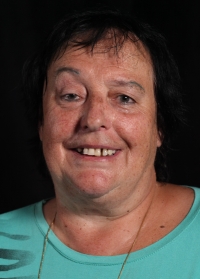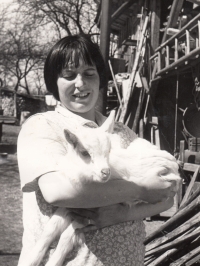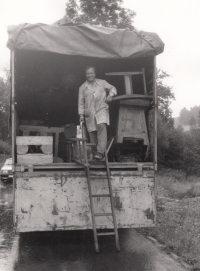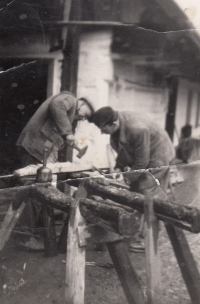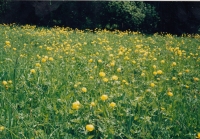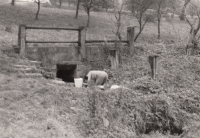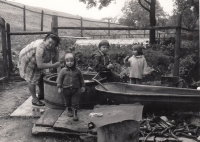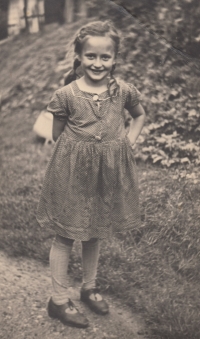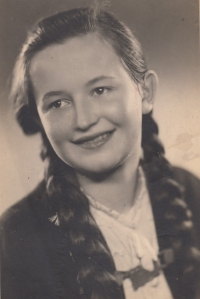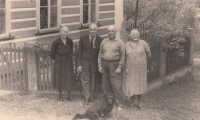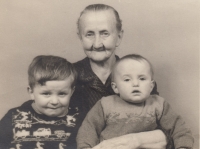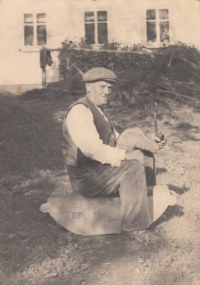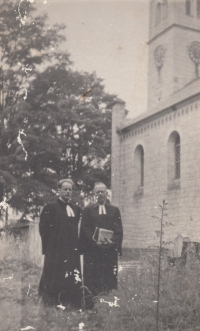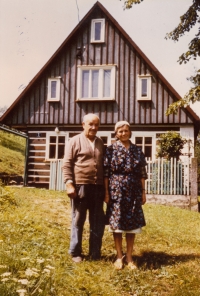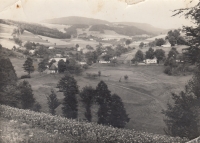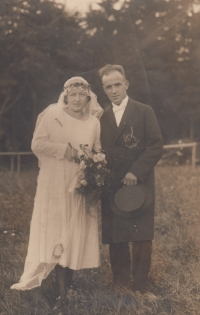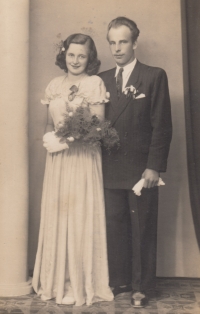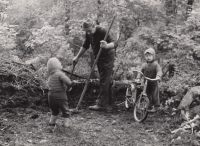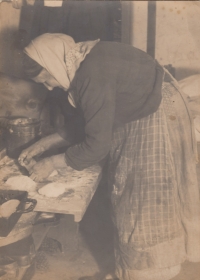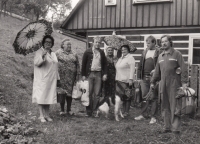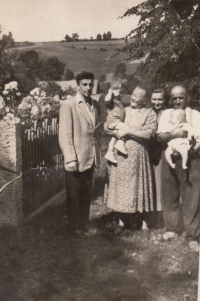The deportation divided the Czech family. They shouted across the border when they wanted to talk to each other

Download image
Jana Hůlková was born on 5 February 1954 in Broumov. Her mother’s side of the family came from Stroužné in Kladsko, from the so-called Czech Corner, which at that time was part of the German Empire. Her grandfather had to join the Wehrmacht in 1944, he served in Greece as a military policeman. At the end of the war he was captured and spent many months in a prison camp somewhere in the Balkans, where he experienced many hardships. He survived only because he spoke Czech. In 1946, Kladsko became part of Poland. Her mother was just fourteen years old at the time. She had to move with her grandparents to Czechoslovakia. They were allowed to take only things they could carry. Her parents stayed in Kladsko and she did not see them for the next three years. Later she was allowed to visit them. Her daughter Jana was also able to visit her grandparents at first, but then had to overcome many obstructions. Eventually, she was banned from visiting them altogether. She resolved the situation with a letter to Gustáv Husák and the presidential office immediately allowed the whole family to visit. The family belonged to the Evangelic church, but preferred to attend services only in Stroužné. Her mother never joined the Communist Party, even though her husband was an ardent communist. He left the party only after the occupation in August 1968. Jana Hůlková still remembers the everyday reality of life on the Kladsko border and many precious experiences and memories of her parents and grandparents in the Czech Corner. She lived an ordinary life in real socialism. She was a pioneer and trained in the Spartakiada. She trained as a weaver and joined the same company where her mother and many other women from Kladsko worked. In 1968, she visited relatives in West Berlin and it was then that she fully understood the fundamental difference between democratic Western Europe and communist Eastern Europe. When her grandfather died in Kladsko in the late 1980s, her grandmother followed him soon after, and the family sold their house. She welcomed the Velvet Revolution and went on demonstrations and strikes. Jana Hůlková lived in 2022 in Police nad Metují.
